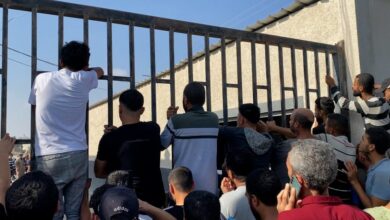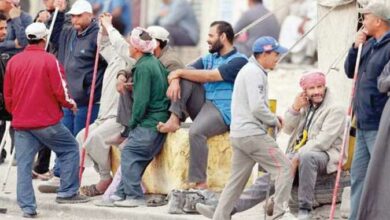Al- Masry Al-Youm: What are your priorities as president of the AUC?
Lisa Anderson: I have a set of things that I want to be able to say that I have contributed to by the time I finish. The most important of which is to enhance the sense, in Egypt and in the world, of the kind of contributions that the AUC is making to the prosperity and growth of knowledge in Egypt and the world.
This is a hugely valuable resource. We have an extraordinarily talented faculty; we have obviously very good students. We want people to understand the kinds of things that [we can] contribute. Not only in producing graduates, which we’ve done for decades and for which we are well-known, but we also have scientists who are discovering new organisms in the Red Sea. We want to commercialize the kind of work our engineers are doing. We want to do more with communities around us and enhance the development of those communities both downtown and in New Cairo.
We want people to appreciate the extent to which we are a real asset, first in Cairo and in Egypt and in the region, but ultimately globally. The kind of work that our faculty is doing is of a global standard in many of the disciplines in which we do research. And we have more and more cooperation and partnerships with universities in the rest of the world.
I think that in ten years people will look back and say this is one of the best universities in the world. It’s small. It’s clearly not doing everything–we don’t for the moment have medical programs, etc. But what we do we do as well as anybody in the world and we do it in terms of research, we do it in terms of education and we do it in terms of relationships with our communities.
Al-Masry: Are there specific schools you’d like to focus on as one of the best in the world?
Anderson: We have five schools at this point, all of whom could be an important player in their own disciplines.
In sciences and engineering we have clearly some of the best programs in the world. We have accreditation reports that confirm that our engineering programs meet global standards. We have a new PhD program in sciences and engineering. We want to be able to produce research that has an impact in these disciplines and in the communities that could use this sort of research, whether it’s in food chemistry, nanotechnology, or biotechnology.
We have a very ambitious business school. For people who are particularly interested in doing business in the region, they should be coming to AUC, whether for degree programs or executive education.
We have a new school of Global Affairs and Public Policy [for] Public Policy education and how to train diplomats and government officials.
And our humanities and social science is in a sense the core of the liberal arts mission that AUC represents. We will uphold that, and I hope persuade people that liberal arts education is the best preparation for the 21st century. It makes you an agile and creative thinker.
Al-Masry: How do you feel AUC competes with other schools in the region?
Anderson: There are a lot of experiments in education in the region as a whole, and particularly in the gulf. So, you see NYU [New York University] now in Abu Dhabi, Education City in Doha, and all sorts of these kinds of experiments. I think, in some respects, the increasing attention to higher education in the region that has been prompted by these experiments is fabulous. The more people talk about higher education, and think about the kinds of skills that young people will need in this region in the 21st century, the better.
That said, I think many of these are implants from the United States that don’t really reflect having roots in the region. They bring curricula that were developed in other places, and are offered here.
The nice thing about a place like AUC is that we develop our curriculum, whether it’s in performing and visual arts, or in computer science, based on the needs of the community here. These are our students, these are our alumni, these are our faculty, we’ve been here for more than 90 years and we are deeply committed to thinking about how those disciplines should be taught and developed here. Not, “What did they do in New York? Let’s bring that to Abu Dhabi.”
Al-Masry: What is the AUC’s contribution to the Egyptian community?
Anderson: Across the board almost anything we do. I’ll give you a few examples. Right now our school of Global Affairs and Public Policy is working with the Municipal Council of New Cairo on plans for transportation and how the transportation challenges of New Cairo, and in fact all of the new satellite cities, can be addressed over the course of the next five to ten years.
We have an increasingly robust relationship from the vantage point of the performing arts program with a number of local theatrical groups and visual arts with, say, the Townhouse Gallery.
Our social research center is doing a lot of the research and development of the conditional cash transfer program that the Ministry of Social Solidarity is working on.
Al-Masry: Some Egyptian middle-class families feel they cannot afford to come to AUC any more after its reallocation to the New Cairo campus?
Anderson: I understand that impression. I do think it's such a spectacular campus, so for a lot of people it’s a little intimidating. But I think it’s very important that people realize that we have exactly the same commitment to the education of the future of Egypt as we had three years ago when we were downtown.
Families need to understand that we have a substantial financial aid budget and we routinely give families support for their students to come to AUC. We want diversity in our community and we are very concerned that we do not become isolated from Egypt. We are an Egyptian institution and we are deeply committed to being part of the diverse landscape here in Egypt.
Al-Masry: What is your response to the October strike by the university's cleaning staff?
Anderson: The walk-out that took place–which was ultimately resolved after several days and considerable negotiation–was prompted by a mistake made by the administration in deductions in their pay. So what we did was of course to correct the mistake, fully acknowledging that a mistake had been made. And then we agreed on several modest concessions about work conditions and so forth. But mostly we agreed to continue discussions, as we had intended to have a fairly substantial pay increase in March and then again in September.
Al-Masry: The workers had initially asked for their salaries be raised to LE1200. Will you meet this demand?
Anderson: The problem is–and I don’t think AUC is the only place in Egypt where this is the case–there is a very interesting difference between what people’s formal base salary is and their take-home pay. Since virtually everyone at that level in AUC makes overtime, you have to be careful what you do with the base salary, because overtime is a multiple […] I actually think that people should not have to work overtime in order to make a living wage […] I don’t think anybody disputes the fact that what our nominal base salary, without the overtime, is far lower than it ought to be. We don’t dispute the fact that we think the lowest level of our workers should be making more in terms of their formal base salary. The question though is what will that mean in terms of calculating other compensation.




